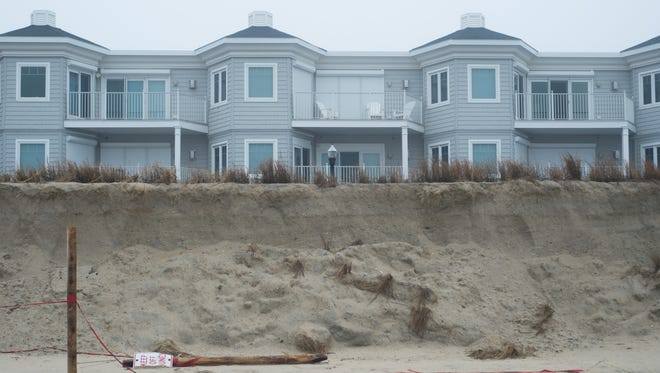You're dune right, Delaware has new beach regulations

When visiting the beach, dune preservation is not normally the first thing to cross people's minds, however, to ensure the protection of dunes, the state of Delaware has amended regulations regarding beach protection and construction on or near beaches.
These new regulations were approved on July 15 and will go into effect on Aug. 11.
"These regulations protect the state's beach and dunes so that the average person can visit and enjoy them." said Michael Globetti, a spokesperson with DNREC.
Globetti also said the new regulations will impact businesses the same way they impact people who own private property at the beach. The purpose of these new regulations is to ensure construction happening at the beach does not affect the dunes and beaches.
"We have a Building Line to restrict construction on the dunes, but when building completely landward of the building line is not possible, we have methods within the regulation to reduce the impacts to the beach and dune seaward of the Building Line," Globetti said.
There are several changes to the beach code, including changes to the definition of a "regulated area" requiring approval to build for the first three build-able lots inland of the mean high waterline. The new change expands the amount of lots required to get approval for building and reduces it in others.
Also to be addressed are issues regarding beach nourishment and existing houses. When reconstructing new homes destroyed by "an 'Act of God' or other accidental event," DNREC must consider the effects of beach nourishment.
The Four-Step Process which requires proposed structures seaward of the Building Line to minimize encroachment onto beach and dunes, which is currently Department policy, is now incorporated in to the revised regulations.
Delaware's Beach Protection Act was passed in 1972 to combat rapidly deteriorating beaches in Delaware caused by natural causes, such as beach erosion and damage caused by severe storms, as well as encroachment from man.
Temporary structures for an event lasting 72 hours or less are exempt from getting approval.
"Delaware's beaches and dunes are among our most vulnerable natural resources, a significant driver behind our state's economy and critical to protecting our coastal areas," said David Small, secretary of DNREC, through a press release. "It also allows the development and redevelopment of these sensitive areas to occur in an orderly and equitable fashion."
The regulations were submitted for publication by the State of Delaware's Register of Regulations on Aug. 1.
rghughes@dmg.gannett.com